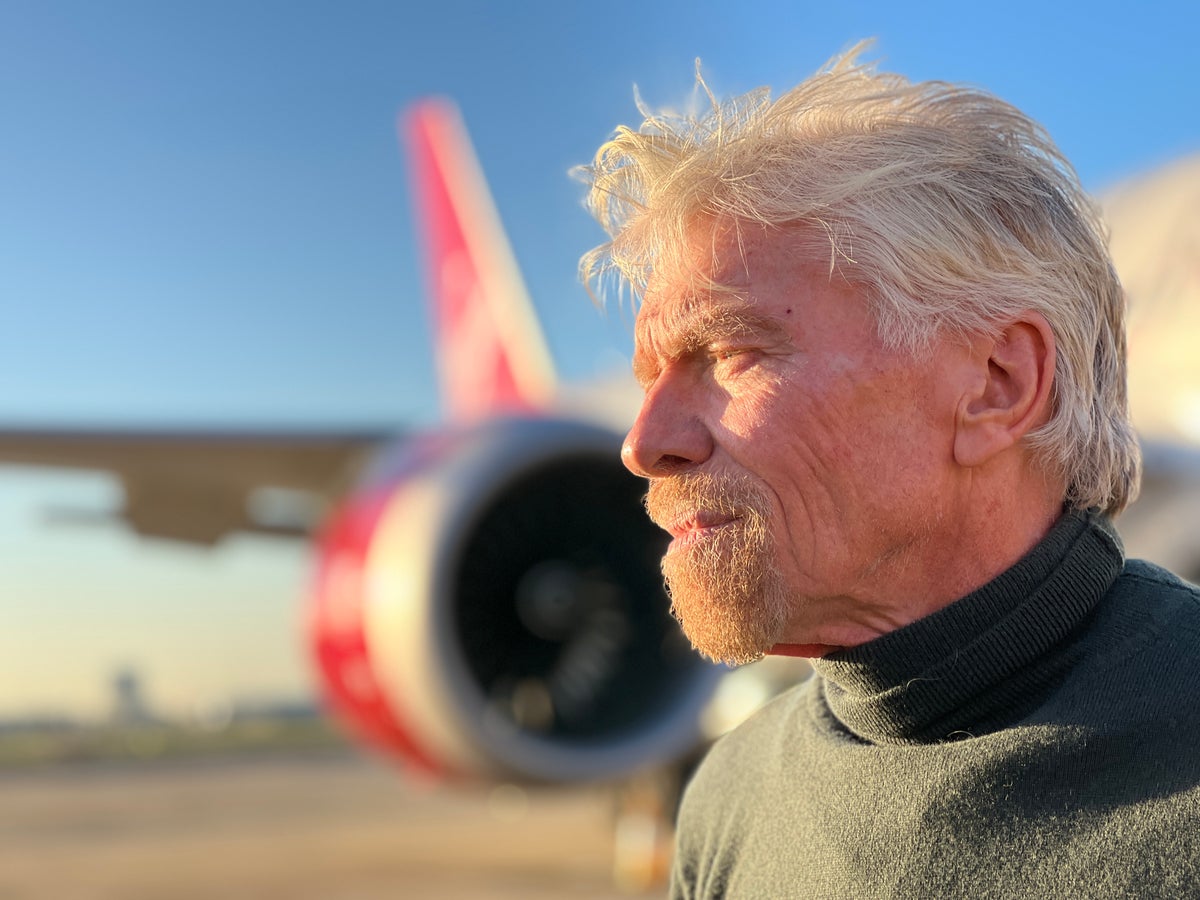
Perhaps you were not even born in 1983, let alone flying long haul. But take it from me: the aviation landscape four decades ago was lousy.
The previous year, Freddie Laker had gone bust, his Skytrain challenge failing to survive against the might of the entrenched airlines. Those carriers were simultaneously extremely expensive relative to average wages and generally abysmal in the service they provided. With cosy arrangements instead of free competition, they simply didn’t need to be good.
Forget any notion you might have about early 1980s aviation being glamorous. Today’s long-haul traveller is far better off, enjoying mostly great service at much lower relative prices. And British travellers owe a lot of that improvement to two knighted British aviation entrepreneurs who built airlines from nothing over the past four decades.
Richard Branson started Virgin Atlantic in 1984; a year later, Tim Clark was part of the team that founded Emirates – which, 38 years on, he still heads up as president.
Both have helped to transform long-haul aviation. Virgin Atlantic set the pace for more comfort, better inflight entertainment and the sheer celebration of travel. Emirates shows how a globe-girdling hub can bring the world closer and deliver great experiences.
Each of their leaders has given me a more-than-usually personal view of the airlines they created.
I met Richard Branson, now 73, at London Heathrow last week. He was preparing to fly to New York JFK on the first-ever transatlantic passenger flight powered by sustainable aviation fuel.
“I have my daughter standing over there,” he said. “I remember her sitting on my lap, 40 years ago when we flew the inaugural flight.
“That was a magical day, although terrifying. Nobody thought we would last the year – and we very nearly didn’t last the year. Definitely, nobody thought we’d last 40 years.”
Virgin Atlantic survived by innovation: working at being better than much larger rivals, principally British Airways.
Emirates began in a very different way. Until the mid-1980s, its “national carrier” was Gulf Air, which fulfilled that role for a number of states in the region. Then Gulf Air started cutting services to Dubai. The royal family promptly decided to launch a new airline, based at the emirate’s then-modest airport. They brought in Tim Clark, a respected route planner at Gulf Air, as head of airline planning.
A name? Emirates would do. The infant carrier’s first flight was a two-hour hop from Dubai to Karachi. Unlike Branson– a serial entrepreneur who initially made his fortune in the record business – Clark is an airline man through and through.
He became president of Emirates in 2003. Today, it is the world’s biggest carrier of international passengers, and, at 74, Clark still reaches his office in Dubai “at 6 or 6.15” each working morning.
“Emirates is a Herculean project,” he says. “It requires a lot of TLC. It requires attention to the detail at the micro end and also at the macro.”
Geo-political realities, such as the calamity unfolding in Israel and Gaza, “take careful managing”.
The Emirates president says: “You cannot make any missteps. Especially when you’ve got 260 wide-bodies flying all the time. It’s very easy to make a mistake in that business. So it keeps me going.
“I’ve got a great team of guys that I work with; have done for many years. We have some real lifers in Emirates. There’s a longevity in the workforce.
“We’re very inclusive about how we go about it. The way I run the business is to bring everybody in, irrespective of their disciplines, to hear what they’ve got to say.
“We argue and fight. In the end, I’ll take a decision, we’ll do it that way. But everybody can see what else is thinking.
“Does this give me a kick? Yes, of course, it does. Do I get tired? Yes I do. But then so do we all.
“I don’t suppose I’m different from anybody else. I’m just a bit older. But when I came to the business and I was in Gulf Air in the early years, I was the youngest kid on the block. I remember that.
“That’s changed a bit now.”
Emirates Airlines boss Tim Clark— (Getty)
Emirates is a formidable competitor for any long-haul carrier – including Virgin Atlantic, which this winter has resumed its Heathrow to Dubai link. Its single daily Boeing 787 is up against six Emirates Airbus A380s – and also competing with British Airways.
BA has become much better over the past four decades because a classy competitor, Virgin Atlantic, has forced it to improve. Branson has a stable of businesses, including sending people into orbit with Virgin Galactic. But his heart remains with the carrier he created against the odds.
“She’s grown into a fantastic airline. The staff are still just as wonderful as they were 40 years ago, which is remarkable. The spirit of the airline is still tremendous.
“We’re still giving British Airways a run for their money and giving the public an alternative service, which is so important.”







